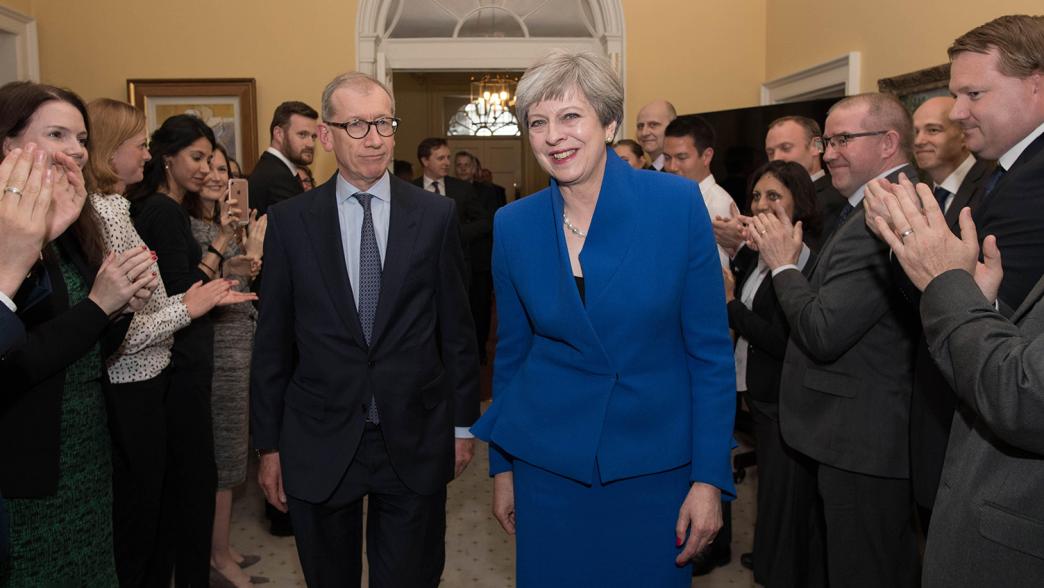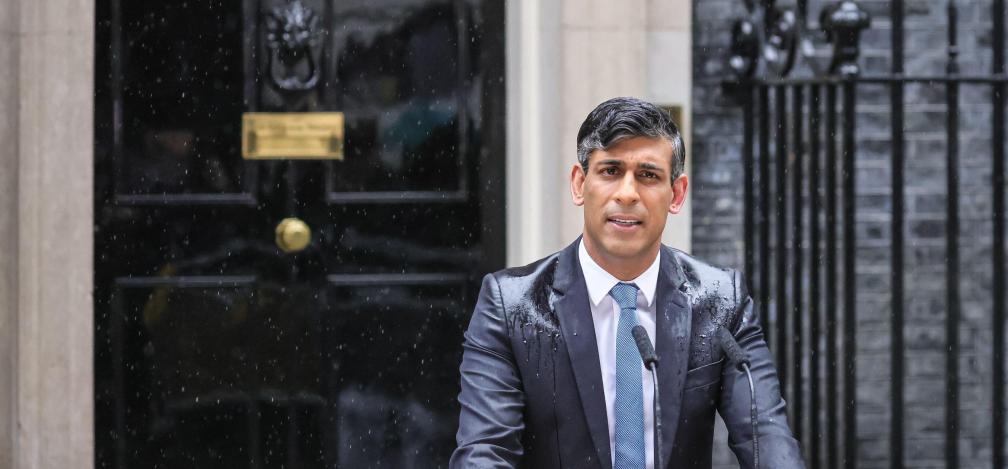Winning a general election: what does a new prime minister’s first 72 hours look like?
The first 72 hours as a new prime minister provides an early lesson in how huge the job is and how extensive the demands on their time will be.

There is a fairly well-worn process that senior civil servants must guide a newly-elected prime minister through during their first 72 hours in the role.
After a prime minister is appointed by the monarch they often return to make a speech outside the front door of No.10 Downing Street. Once they enter through that famous door, the real business of government begins. They will be clapped into the building by the No.10 staff, greeted by the cabinet secretary and then will receive pre-prepared civil service briefings. These briefings cover everything from living arrangements for the prime minister and their family, to the ministerial appointments process, urgent decisions on key policies, important protocols, security and intelligence information, and the nuclear deterrent.
Alongside these, the new prime minister is immediately launched into many rounds of phone calls with international leaders. The order in which these early tasks are completed will partly depend on external priorities, partly on how the new prime minister wants to tackle them and partly on how each day pans out. Getting through it all can be an exhausting process, particularly following a gruelling election campaign, and the pressure of media and public anticipation usually means they want to be seen to be energetically embracing their new role.
The first 72 hours provides an early lesson in how huge the job is and how extensive the demands on their time will be.

Day 1
| Visit to the Palace and appointment as prime minister | Security team to escort PM-elect to Buckingham Palace. Meeting with King. Return to No.10 with principal private secretary (PPS). | Senior political team will be welcomed into No.10 through Horse Guards Road entrance |
| Arrival at Downing Street | Address from Downing Street, before entering No.10 where they are met by the cabinet secretary. They will then meet with the cabinet secretary and PPS. | The first speech to the country as the new prime minister. Usual tradition for staff to be gathered and to clap the new PM in. |
| First day briefings | The PM will receive a set of day one briefings and formal advice from the civil service. This will include information about key issues or responsibilities and decisions on immediate policy and structures. Many of these will have been discussed in access talks. | The exact order of briefings and meetings will partly depend on what new PM wants. |
| Nuclear deterrent | A new PM has to write letters to the commanders of the four nuclear submarines which maintain the UK’s continuous at sea deterrent. These letters will replace the previous PM’s instructions about what commanders should do in the event of a nuclear strike that wipes out contact with the UK. | Writing the nuclear deterrent letters are not necessarily the first act of a new PM, but they often come up early in briefings and bring home the nature of the role they have taken on. |
| Forming a government | The PM will appoint their cabinet ministers, typically meeting them each individually in No.10. Any major immediate machinery of government changes will be announced as cabinet ministers are told their responsibilities. Key decisions on cabinet committees will be made at this point – including their terms of reference, chairs and membership. Newly appointed ministers will meet with the head of the propriety and ethics team to discuss potential conflicts of interest or any other issues. | The PM will be guided through the appointment process. There are particular appointments that must be made in law and there are restrictions on overall numbers. Decisions will also be made on which ministers are entitled to use government residences, for example Chevening and Carlton Gardens. New ministers will usually be taken by car to their department, here they are met by the permanent secretary. They will greet departmental staff, before receiving their own day one briefings in the department. |
| Phone calls from other world leaders | Throughout the day and over the weekend the PM will take calls from other world leaders congratulating them. | There is usually a degree of protocol around the order of receiving phone calls of congratulations from world leaders. |
| National security briefings | The PM will be briefed on the latest intelligence and key threats. | |
| Immediate media announcements | The political staff will begin working with officials on plans for the first days in office and any major announcements of policy. | |
| Living and working arrangements | Early decisions must be made about how the PM wants to work in No.10 and organise the centre of government more broadly, as well as regarding the PM and their family’s living arrangements. Some of these details may have been agreed in access talks. The PM’s chief of staff would likely be involved in all immediate decisions about the how the PM will work, how No.10 and the centre will be set up, and the PM's diary for the first few days. | A new political team will begin arriving in No.10. Some decisions about office arrangements may have been made before the election, with key advisers and officials often wanting to be close to the PM’s office. |
Day 2
| Continued ministerial appointments | Any remaining cabinet appointments will be made and appointment of junior ministers will continue throughout the day. | |
| Further phone calls | Calls with other world leaders will continue, along with speaking to first ministers of the devolved nations, if this did not happen on day one. | |
| Key policy and legislative priorities | Discussions and decisions about key policy and legislative priorities will begin, building on the access talks. There will be less than two weeks to agree plans for the first parliamentary session ahead of the King's Speech and State Opening of Parliament. | These will change depending on key priorities. Cabinet office teams will begin working with departments on plans for the first legislative term |
| Nuclear deterrent | The PM also has to appoint ‘nuclear deputies’. These are members of the government to whom the PM has delegated authority for taking nuclear decisions in their absence. | It is not automatic that it will fall to key ministers in defence, security or foreign policy. |
| Further policy briefings | The PM and their team will have further briefings from advisers in the Cabinet Office on national security, economic and domestic policy and foreign policy. | Civil service will have briefings prepared based on manifesto commitments, public statements of intent and access talks. |
| Procedural guidance and training for new ministers | The PM must issue their own versions of the Ministerial Code, Special Advisers' Code, and guidance on propriety and ethics. Discussions will begin about training for new ministers. |
Day 3
| Continued ministerial appointments | Further appointments of junior ministers will continue into Monday. How long this takes may depend on the length of discussions between the PM and ministers being appointed, or whether these calls are delegated to others. | Appointment of special advisers also need to be approved. |
| Further discussions on organisation of No.10 | Decisions about how No.10 and the centre of government will operate will begin to be implemented. Special advisers will continue to be appointed to fill relevant roles. | The Policy Unit and other key units may need to be set up – some of these might begin to be delegated in detail but will need the PM's approval. |
| Further international and domestic phone calls | Calls with other international leaders and key domestic stakeholders will continue. | The Foreign Office will have provided the PM with briefings for their discussions with other world leaders, including commonwealth leaders. Many will be courtesy calls but there may be some key messages diplomats will advise upon. |
General election 2024
The next UK general election will be held on Thursday 4 July. Our analysis, explainers and events explore what happens before and during an election, how political parties and the civil service prepare for the outcome and what it means for government.
Find out more
- Political party
- Conservative Labour
- Position
- Prime minister
- Department
- Number 10
- Public figures
- Rishi Sunak Keir Starmer
- Publisher
- Institute for Government